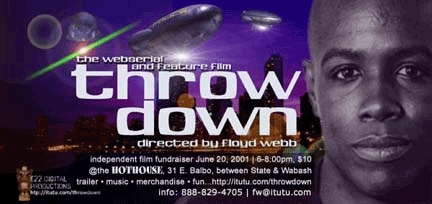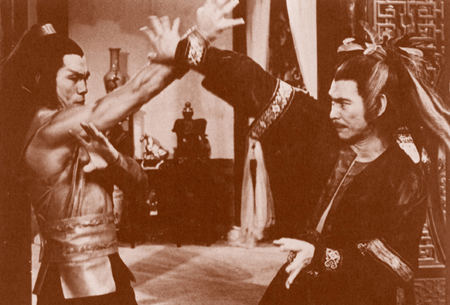The World Wide Floyd Webb 2004
Mr. Floyd Webb, the teknocreative, returns for a second visit to the kinté space, following up his 2000 interview. This time we cover lots of ground, over family, reparations, 911, Cheddar Bob, Basquiat, Nalo Hopkinson, Cuban slavery trilogies, LIBRadio, watermelon, Francis Cress Welsing, Credo Mutwa, Amen Ra Films, NgoziOnwurah, Octavia Butler and much more!
Bryan D. Wilhite: Happy New Year first of all—as Jimi Hendrix says, “I hope we have a million or two million more.” The first question would be, What have you been up to since October 2000? A better question might be, Do you have a Dot.com Crash War Story like the rest of us?
Floyd Webb: What have I been up to? Well, watching my son’s get older for one. I have been reassessing what single parenthood is about, and where the mistakes have been made and doing course corrections.
The Dotcom crash??? I was working when it came. Doing Bread and butter work on an AT&T project wondering “how long?”
I had just completed some work on a motion graphic piece on [Basquiat], BASQUIAT: Meditations on Fame and Self-immolation,a personal meditation on the subject of “burning bright and dying young.” It was part of a traveling exhibition called Race in Digital Space curated by Erika Dalya Muhammad.
During the crash, I had hit a creative high that comes with less worry over b&b issues (bread and butter). I was perfecting some ideas on images and iconography of which the Basquiat piece was first. I also started working on The Malcolm RemiX and a piece I am calling Melonophobia, a meditation on the watermelon.
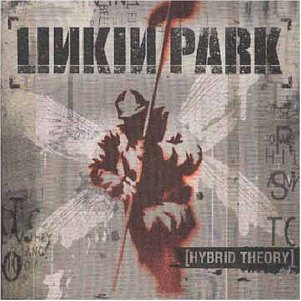 Meanwhile, I am watching my two sons, 12 and 27, go through their own growth and maturity. Having children and paying attention to them and learning from their developing critical capacities is a lesson in itself. My 12 year old plays baritone and alto saxophone, is in the jazz band, thinks Charlie Parker is necessary to his music education and is a big Linkin Park fan. He got a bass guitar recently and a Jimi Hendrix song book as well as a Hendrix box set. He was practicing the bass line to Fire yesterday. Now this is a kid brought up on Salif Keita and Fela also, is/was a Legomaniac and I am anxious to see what this exposure leads him too creatively in whatever he ultimately decides to do.
Meanwhile, I am watching my two sons, 12 and 27, go through their own growth and maturity. Having children and paying attention to them and learning from their developing critical capacities is a lesson in itself. My 12 year old plays baritone and alto saxophone, is in the jazz band, thinks Charlie Parker is necessary to his music education and is a big Linkin Park fan. He got a bass guitar recently and a Jimi Hendrix song book as well as a Hendrix box set. He was practicing the bass line to Fire yesterday. Now this is a kid brought up on Salif Keita and Fela also, is/was a Legomaniac and I am anxious to see what this exposure leads him too creatively in whatever he ultimately decides to do.
My 27 year old son is back in film school at ColumbiaCollege and is trying to bridge the gap between us as he grew up in another city with a step father. He is coming out of a phase of “blowing up” in the hip hop world and wants to now make it in the film world. He is taking it serious at last but is not as adept at the technology as I feel like he should be. But it is up to him…His generation has a lot of excuses and a lack of serious commitment in my opinion. They practice a form of formless politics. Not even anarchy. At least anarchists act. In my old age I feel like they are political Rastas for whom Jah will provide and that a haze of ganja smoke will heal the world…
I have watched the dissolution of old networks because of job flight abroad and 911. 911 now there is a subject. I started a documentary… I am having a time trying to finish on the image of America abroad. It is not as simple as many of us believe. I was in Europe when the attack on the WorldTradeCenter occurred. I watch Americans on the BBC make proclamations and begin a slow descent into low-level xenophobic racist and reactionary thought and behavior.
The doc’ is titled either From a Distance or Us & Them. We will see when I finish. I thought about my grandfather who was murdered when I was three. I thought about exploding homes of people trying to vote in Mississippi, Alabama and Georgia, the serial bombing of TulsaOklahoma, the Red Summer of 1919. Terror was as American as Apple Pie. As horrific as 911 was, I knew it was about more than some guys on some airplanes… they got past the security of the strongest nation in the world and committed an act that calls the very nature of our government’s strength into question. I have learned new words and ideas since 911, “asymmetrical warfare,” “Fourth Generation Warfare”… I wonder why Bush does not take these ideas and concepts to heart.
Back to the loss of networks. Many people I know who passed work onto me lost their jobs in 2001. That meant a loss of work and revenue that I would pass on as I employed people to assist me many times. I was not in any big time Internet deals. I never believed in pie in the sky or playing the lottery too often…I do both occasionally though. I am having to rework my networks.
I have rambled… ask me another question….
I thought about exploding homes of people trying to vote in Mississippi, Alabama and Georgia, the serial bombing of Tulsa Oklahoma, the Red Summer of 1919. Terror was as American as Apple Pie. As horrific as 911 was, I knew it was about more than some guys on some airplanes…
rasx: Dr. Francis Cress Welsing stated in a radio interview (a prerecorded program on LIBRadio) that we do not have families any more; we have “survival units.” So you and I have the same fractured thang we struggle daily to hold together, my responsibility as a father among three mothers (all made pregnant as adults and all for a form of love). The early rasx poems about this matter (among others) are available at Café Press and more to come here in the kinté space. It is important for us talk about this issue as matter-of-factly as the weather because this ain’t rain that’s falling! The children need to know this history/wisdom to avoid inheriting the flawed world views of the father and the mother. This experience has forced me to redefine what family means, to look toward the non-European past in more than just an intellectual, public-political way and start to form a new mindset. An itutu.com demo reel showed me that you too are looking back to the past, starting with the architecture of the ancient Egyptians. What was the primary motivation behind this effort? Was it more for family or a larger society?
FW: That demo reel was contracted work. Things we have done individually and collectively. I of course am attracted to work I can feel and get excited about. But I shared it with my young son who is in school in Oak Park, IL. He was studying Egypt and needed a supplement for his class so I did up a website for him and gave him access to all of the Egyptian materials I used for the project. He was able to show the class the information at school on their computers. The Egyptian work was done for Wesley Snipe’s company for a documentary he financed on Dr. Ben. It was directed by St. Clair Bourne.
Sometimes I think our relationships have more to do with overcoming adversity than anything. I find myself weighing my sense of self against my responsibility to family, a natural conflict I am sure. I recall seeing so many men complain in an off handed way, “if it had not been for my family…” The point is we make our choices for better or for worse. We course correct as we go, or not. Live the best you can, be the best human being you can be.
Children are the reward of life…I have come to believe that. Each one means new hope…another chance to effect the world. We can pass on what we have learned and maybe even live to see them correct our mistakes.
rasx: Jumping back to the Basquiat piece for the “race” fest at MIT: what would you say about Basquiat in general? Is his life a cautionary tale or a prototype to be improved upon?
FW: Cautionary most definitely. Someone once said of the Greeks, “Oh how they must have suffered to create such beauty...” Please don’t ask who. Basquiat was a great talent looking for the bling. The bling was the thing. Fame. How we chase it, and how it eludes so many of us. What are we willing to give up for it, what are we willing to sacrifice. Is the pursuit of fame demonic...LOL. Based on what it can do to people there might be a good argument. I look at his estate and whom it benefits. Basquiat, cultural pickaninny and slave to the privileged classes.
rasx: So this short-term success can’t be some kind of deformed reparations—“Indian” money—Indian gaming money?
I am skeptical of reparations on these grounds:
In the event we get paid, does that mean slavery is ok now because we got paid? All injustices have been redressed in the exchange of some coins? Hell no. one thing we should realize is this, if reparations is not aimed at specifically benefiting children as an investment in their future then we may as well not get it at all.
Who gets the money how will it be managed? Fred Hampton raised the issue of Black folks with no political education handling wealth as being problematic. It was shiny beads that got us into this situation in the first place, greedy, bling-bling-loving leadership with no foresight. Money don’t necessarily make it better, it is whose hands it is put in.
Where is the pre-planning of a structure that would handle the funds for an institution? Because if it is about getting a check in my hand personally count me out. I will never sell out my right to rebel and oppose the most heinous of all historical American crimes. This is not about a check to me personally it is about institution building and if it is about institution building, is it in the interest of the US government to uplift the race?
Personally I think we should forgo all that and just be given the collective intellectual property rights of every Black cultural innovation, song and invention over the course of 500 years in the new world. Anything Black folks have been significant in improving, contributing to or giving resonance should have a royalty attached to it. Every time folks slice a watermelon, we paid, every Aunt Jemima pancake consumed, we get paid, every time someone play five notes of a Louis Armstrong solo, we paid, Vanilla Ice royalties paying out, Slim Shady, taxed, Butterbeans and Okra, taxed…Now that is reparations…
rasx: I sent a very critical email to attack the people at MIT for revitalizing the word “race”—ordaining racism with a future by casually associating it with information technology—and then not having any “real technical” speakers on the panel. “Real technical” refers to a speaker who is an accomplished information technology professional that also has the creative capacity to deal with “the humanities” quite well. DJ Spooky and FaraiChideya don’t make the cut. They already used up Philip Emeagwali in previous years, so the challenge for MIT would be to find other people of African descent who have a sense of politics and a deep knowledge of computer-centric technology. My concerns center upon portraying “people of color” as more instinctive than technical, more emotional than tactical, more explosive than articulate. Did you also have this concern? Is there something I should have known before the email was sent?
FW: No. You were right to raise your concerns. Never regret standing up for what you believe. We need the critical discourse. I have a friend named Jevon; he is white. He was looking for jobs online and posting his resume. He was getting no love. He had interviewed for a job and, when he did not get it, he wondered. He went into the place he applied to and spoke with someone. They were shocked he was white. The boos thought by virtue of his name he was black. Too many late-night neo-blaxploitations films of UPN network probably.
Jevon then went back and removed his name and became J. Parker—he immediately got 100 times more hits to his resume and responses.
Race is not associated with technology as much as we as individuals are, and we carry the corporeal world, our personal realities with us into whatever we do. Racism dies a slow agonizing death…on its death bed it strikes back anew. It claws at the stake through its heart. It is the end of an era and the world is changing. We live in a time of declining American power and we are see the consequences of that. Great military might is never an answer to questions of policy and karmic mountains.
Legba is the communicator, the knower of all languages and the internet is his tool. African religion is an adaptive religion. HooDoo is its own technology. It is up to us who know to greet Legba when we see him. For me it is better not to conform to the discourse but to observe it and participate and follow the path I have chosen.
Race, and the American attitude towards it now plays itself out in a global arena. I will never practice American racism and xenophobia as a tool of our horrific policies and practices in the rest of the world. Why do “they” hate us so? They don’t. It is the height of arrogance to think that the world hates us, all Americans everyone.
I have never ran into people who hate all Americans. They save that energy for the ones who carry the American arrogance, I was on a boat crossing the English Channel in the early 80s, a man saw my US Passport and struck up a conversation with me because I was an American. First thing he asked me was what was I doing there—was I military?
No.
He then started talking about Vietnam war and how ungrateful the Europeans were since “we” saved their bacon in WWII. We were in line preparing to disembark at Calais. I was rather embarrassed being faced with this “Ugly American.” I explained to him that war was an outmoded activity. That how do you defeat an enemy who continues to fight when you are killing them 1000 to one? When you bomb them relentlessly for 3 years? I asked him about Eisenhower and if he remembered his farewell speech, his warning against the power of a “military industrial complex”:
Throughout America’s adventure in free government, our basic purposes have been to keep the peace; to foster progress in human achievement, and to enhance liberty, dignity and integrity among people and among nations. To strive for less would be unworthy of a free and religious people. Any failure traceable to arrogance, or our lack of comprehension or readiness to sacrifice would inflict upon us grievous hurt both at home and abroad.
…In the councils of government, we must guard against the acquisition of unwarranted influence, whether sought or unsought, by the military industrial complex. The potential for the disastrous rise of misplaced power exists and will persist.
We must never let the weight of this combination endanger our liberties or democratic processes. We should take nothing for granted. Only an alert and knowledgeable citizenry can compel the proper meshing of the huge industrial and military machinery of defense with our peaceful methods and goals, so that security and liberty may prosper together.
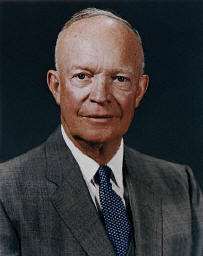 Now I am quoting Eisenhower here. How much more of a damn patriot can I be? Even though I know Ike signed the warrant for Lumumba to keep Kitanga’s Minerals, especially uranium, in the Congo. I try not to throw the baby out with the bath water.
Now I am quoting Eisenhower here. How much more of a damn patriot can I be? Even though I know Ike signed the warrant for Lumumba to keep Kitanga’s Minerals, especially uranium, in the Congo. I try not to throw the baby out with the bath water.
My fellow American called me a communist. I said, “there are none…finding a good communist is like finding a good Christian…good luck.” He did not appreciate the humor. It is times like this being a 6'3" Black man definitely saves my ass, I know all I have to do is put my hand in my pocket front or back and suckers will back off. Oh and put a movie scowl on my face and maybe say “suckah!!!!”
Technology is definitely a racial quagmire. I look at my 27 year old son and see that he has made little effort to acquire the skills he needs except in playing video games. He has had the technology at his disposal and is learning that it is necessary for his advancement. And he is not the only one, many others, black, white Hispanic have the same challenge ahead of them. The digital divide is not narrowing. We have no programmers to speak of. There are not that many people to point to who have a visionary agenda regarding technology. It is all survival-based because it continues to be hard for us to survive.
It is up to us to create and control the discourse we want.
 rasx: Is there anyone on this planet providing material like the Dr. Ben documentary you mentioned for sale? Has Amen Ra Films packaged programs to go straight to DVD?
rasx: Is there anyone on this planet providing material like the Dr. Ben documentary you mentioned for sale? Has Amen Ra Films packaged programs to go straight to DVD?
FW: The Dr Ben doc’ is presently in limbo. Maybe when Mr. Snipes finishes Blade III he will get back to it. The project is almost done. St. Clair Bourne had a great cut that I think Snipes had not seen yet.
Anyone can provide whatever he or she wants on the internet. The key to sales on the internet is fulfillment and customer support. One site can be used for marketing then one can partner with a fulfillment house and, once the site is done, merely supply the product and then wait for the income. Amazon is but one of the companies you can partner with for fulfillment. Plus the brand is solid. People trust Amazon.
rasx: The Amazon pitch has not been attractive to many of the would-be online merchants of African descent that have taken the time to talk to me about this matter. I sense an old-world mindset from the 1830s that demands a level of control that rivals the greed of the very slave master with which they relate passionately. The last time I checked, Amazon.com wants 40% of the “sticker price” and this chunk is just too high for many of my brothers and sisters. Looks like this percentage is sitting out there in isolation. Why can’t we see a system?
FW: Infrastructure…Amazon.com is charging 40% for infrastructure and branding. Not only that, they will give you a percentage of between 7% and 15% for referrals from websites so with good marketing online you can get some of that 40% back, Amazon is full of incentives.
Anyway you can lead a horse etc, etc…you deliver your product materials and information to Amazon and do your marketing drive it is passive income. No stocking, no shipping unless you want that particular deal. Amazon does great accounting on a daily basis and send those checks out like clockwork. Some people just wanna bitch. I say make a through investigation and make your own decision.
rasx: Speaking of digital media, what’s the story on Throwdown? Is there anything from this experience that we can learn (at your considerable expense)?
FW: The story of Throwdown is not complete. I will keep you informed. The African pots boils…it is more my failure to follow through and being distracted by other things that Throwdown is not done. We can talk about that if you want…
rasx: Okay: How far do you want it to go?
FW: The production itself has been back-burner-ed because of the usual “funds not yet discovered” dilemma we tend to find ourselves in. Sometimes we find worlds tumbling down around us and spend more time looking for ways to persevere than pursuing our dreams. Maybe I just lack the proper medication. Maybe as I grow older I become less delusional.
Then again, on a positive note it is all about learning the lesson and correcting the course of one’s life constantly. I often use the analogy of being at sea with a rudder that is weakened from lack of maintenance, eaten away by the salt of the sea from either neglect or negligence. When I watch my sons I can see my bad habits personified, see an opportunity to correct the mistakes of my life in them—they are my greatest creations. They are building new ships, my ship is in dry dock for refitting, retooling…for the storms of a new world.
But the structure of this vessel I use to travel through the ocean of life has a finite life. There are cannon that have never fired, storage holes that were never filled...The Hulk rusts and the image of a sparkling vessel on the horizon is harder to pass off. But, on the positive tip, this ship has lore and has been where few have failed to go—and may have a few voyages in it yet.
Now what am I saying? I am trying something different for a moment. My dreams are always important and will live as long as I do.
This does not answer any of your questions does it?
Come back at me…
rasx: Sounds like the life of Orson Welles after Citizen Kane. How did the Throwdown ship set sail? What was the image(s) and/or word(s) that would be the inspiration to fill the blank canvas?
FW: Throwdown is a case of creating an affordable project that will lead to a more expensive feature. I had written a screenplay for a fantastic adventure called The Adventures of Willie Gitback: The HooDoo Ninja, he was a Wisely type Character. —Oh: Wisely is a character created by Chinese novelist Ni Kuang and is a series that was a film, then on Hong Kong television as a series. I wrote William Guttenbach, alias Gitback as a distant conceptual cousin of Wisely. It is the dream projects of dream projects. I needed a way to get there.
I was visiting home one winter while I was working in London and had to take the bus to downtown Chicago from Oak Park. The bus went express straight up Washington…The bus had a problem and we had to change buses. As we were moving to the next bus a shoot out occurred right in front of us. Three of us had to literally step over this guys body out of fear and confusion. It was a dehumanizing moment. We could not help this man. We all were in fear of our lives. When we got on the bus, no one realized what had happened outside…The bus pulled off. This was all in the course of like 90 seconds…The guy was lying there as we pulled off.
It was about drugs, about turf. It was a waste…I have always felt that the human desire to have sex and get high would never be controlled or regulated. Just leave it alone and worry about growing more food; tax it—like you do liquor and cigarettes. Teach more prevention, properly counsel and intervene. A person who abuses his own body is not a criminal. The crime comes from pursuit of the high.
More people die from the love of a pork chop than they do from drug abuse. Overeating is substance abuse. Bad diets, overeating, leads to hypertension—hypertension leads to death prematurely. Between food, alcohol and nicotine abuse, death from drug abuse is not even an issue. It does not even register next to those three.
Throwdown was the world I wanted Willie Gitback to escape from his sordid violent past. Much like the lead character in Nelson Pereira Dos Santo’s Amulet of Ogun (Brazil, 1974). Throwdown is about some friends he left behind, lives he learned from who were caught between the sacred and profane worlds of survival in a brutal environment and the possession of spiritual gifts.
Talks with an old African history professor named John Higginson, at UMASS, Amherst were a great help for me forming the story. John was born into the old Chicago marginal communities where numbers and narcotics were evident and policed by the thugs themselves. John had stories I could incorporate loosely into my tale. I read Gramsci, Looked at the rise of drug addiction after major wars and prohibition as a means of not temperance but to increase production in factories and studied Al Capone.
I concluded the best way to take a bite out of crime was to decriminalize drugs.
John raised an interesting question for me. He said maybe narcotics is the most democratic industry in the country. That got me to thinking and gave me my conflict.
By the way, I don’t use drugs nor do I drink. I have wine with dinner…maybe.
This is where Throwdown came from.
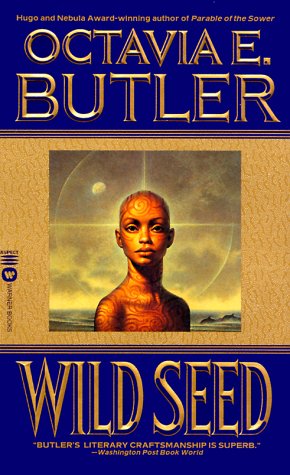 rasx: Again, it appears to me that we are on the same wavelength but the wave will always hit you first! What inspired me on a similar path is the work of Octavia Butler. She led me to this principle: science/speculative fiction is the best way to introduce African culture to young, transplanted African people without them knowing it is African culture. To create something like Frank Miller’s 300 for, say, the African history of the NileValley would be flawed by design for a transplanted Occidental like me. Since no one knows how the people of the future will speak or move or think, future fiction looks like the best time-space to explore. There is a future for African people! And it can be a creation that cannot be reduced to the absurd like George Samuel Schuyler’s Black Empire. And it can be a self-sustaining independent creation that does not need to integrate with and depend on the Star Trek Federation under the command of Yet-Another-European-Picard or Another-Western-Wig-Wearing-Avery-Brooks. The model that you are presenting to me says, “Do the work in ‘comic’ or manga form.” “Let this serve as story boards for the motion picture to come later.” One modification to this model would include a narrative prose version of the story as well-and even a radio version (of the narrative prose or a full blown radio drama). As you say, the motion picture stuff is expensive while the print, web and radio stuff is doable by any of us and it proves that we love and respect the story more than the status symbol of “making a film.” Is this model something explicit formed by you or is this just one way to see what happened?
rasx: Again, it appears to me that we are on the same wavelength but the wave will always hit you first! What inspired me on a similar path is the work of Octavia Butler. She led me to this principle: science/speculative fiction is the best way to introduce African culture to young, transplanted African people without them knowing it is African culture. To create something like Frank Miller’s 300 for, say, the African history of the NileValley would be flawed by design for a transplanted Occidental like me. Since no one knows how the people of the future will speak or move or think, future fiction looks like the best time-space to explore. There is a future for African people! And it can be a creation that cannot be reduced to the absurd like George Samuel Schuyler’s Black Empire. And it can be a self-sustaining independent creation that does not need to integrate with and depend on the Star Trek Federation under the command of Yet-Another-European-Picard or Another-Western-Wig-Wearing-Avery-Brooks. The model that you are presenting to me says, “Do the work in ‘comic’ or manga form.” “Let this serve as story boards for the motion picture to come later.” One modification to this model would include a narrative prose version of the story as well-and even a radio version (of the narrative prose or a full blown radio drama). As you say, the motion picture stuff is expensive while the print, web and radio stuff is doable by any of us and it proves that we love and respect the story more than the status symbol of “making a film.” Is this model something explicit formed by you or is this just one way to see what happened?
FW: Which came first, the story or the Oscar? This is basic “krik-krak” we need to get back to…the story by the light of a campfire, candlelight, with shadow puppets. It is not the medium but the message…still.
I have sat in Indonesia and watched the shadow puppets and seen Kabuki in Tokyo, watched MzeePembe and Mamma in Tanzania…it is the story. Even without language, the experience is a telling in itself. I think of that soul opera that R Kelly and Mr. Big did, I mean that Isley guy…I love that stuff. It told a story, it took us somewhere, and the song was less mundane because of its treatment and structure. It was so telling in the way it exhibited degradation of the relationship between an older-man, broke-down pimp, and a gold-digging, two-timing hussy. It was the blues
The basic storytelling of a Nova by Samuel Delany, or a tale of resistance like Sembene’s Ceddo all resonate not because of what they were created on, but what they tell. It is more about how they tell the story, how they take us to the end of the tale that is so delicious.
I have rambled along to get to this point: value the story; produce storytellers for the story is the point—not an Oscar, not the reward of consumer culture, but the reward of a satisfied audience whom you challenge, entertain, teach, and bamboozle for your own agenda…
My 12-year-old wanted to watch Gangs of New York; I let him. We talked about it; I got the book for him used on Amazon. I want him to have a literacy of media, so I do not censor. Together we can examine the book and see how decisions are made by the filmmaker/writers what is excluded what is invented.
He needs to know this America of the Gangs of New York and to understood where his ancestors stood within it. Like many 13-year-old, American boys he is in love with watching “sh-t blow up” shooting and violence. I was also at his age. I want him to have an analysis of his own attraction to violence and “action.” I want him to gain an intellectual awareness of the violent side of the Human psyche.
I want him involved in understanding the nature of storytelling. I used to make up stories for him when he was a child and he would want to rework the story the next night, save a character that I had doomed, lead the lost ants out of the desert—the ones too afraid to believe the river of water was real and not a mirage. Good storytelling engages the head and moves the heart. You care about the characters.
I am amazed at how many kids sympathize with the character Cheddar Bob in 8 Mile. How do you create a character that captures the imagination and makes you feel? It is in the spinning of the tale. Nothing feels like handspun cotton, nothing resonates like a well told story. I love storytellers. I love radio drama. I make the effects; I see it in my head…I create the hero in my own image. The same with a good book…No form replaces another…technology is only an enhancement, an extension of culture.
I have rambled along to get to this point: value the story; produce storytellers for the story is the point—not an Oscar, not the reward of consumer culture, but the reward of a satisfied audience whom you challenge, entertain, teach, and bamboozle for your own agenda…not some 24 year old marketing kids potential bonus.
Manga, Oral, Shadow, Sidewalk Chalk, Internet, DV radio whatever. Value your story and find a way to bring it to the world.
rasx: All this talk about the fictional future of drug use brings to mind NgoziOnwurah’sWelcome II the Terrordome (1995). Forgive me if he/she is a friend of yours but this movie was… Let me put it like this: I am pleased that Chuck D’s Public Enemy had such an impact in England. Public Enemy deserves such respect. I am pleased that such a large cast of African people were assembled to work on the project. Me and my homies have trouble getting less than five actors to show up for anything here in Los Angeles. The opinion here is that the movie was a premature ejaculation: it needed more development and this is what the rigors of the Manga/short story can provide. You don’t get the phone numbers of beautiful, neurotic actresses but you do get a good story. Do you think that the desire to get the damn thing done overwhelms freshman filmmakers? Are they just trying to get their story told before someone “steals” it? Are many of us living on a “western” time scale that has them undercooking their spiritual food? Is it dangerous to create art for material reasons?
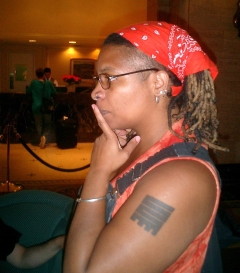 FW:
Terrordome was less than tasty for me. It was an attempt and I looked at it for its pro-creative values and not so much as a work of art. The filmmaker had personal issues to work through as well as a limited budget and not much time to produce her vision. Above all, like Spike with Malcolm X, Singleton with Rosewood, and others who have attempted to make the black-directed moral equivalent of a Pontecorvo’sQueimada, or a Costa Gavras’sZ, Cuban filmmaker Sergio Giral’s incredible slavery trilogy, Maluala, Rancheodor and The Other Francisco, or even Pontecorvo’sBattle of Algiers, there is a lack of exposure to an essential political cinema. An illiteracy that shines through, as if a jazz musician who wants to solo not having ever listened to the standards, knew the changes to “Lover Man” or listened to Monk or Trane. What was the benchmark? Terrordome was an attempt by an intellectual filmmaker to straddle the fence of commercial success. I would not even attempt to shoot my film before getting the likes of a Nalo Hopkinson to at least take a look at [a script] and would gladly pay for the critique. Bad as I think I am I think a seasoned hand can be instructive…but it can be destructive also if one is not secure enough to take the criticism and retain the personal vision.
FW:
Terrordome was less than tasty for me. It was an attempt and I looked at it for its pro-creative values and not so much as a work of art. The filmmaker had personal issues to work through as well as a limited budget and not much time to produce her vision. Above all, like Spike with Malcolm X, Singleton with Rosewood, and others who have attempted to make the black-directed moral equivalent of a Pontecorvo’sQueimada, or a Costa Gavras’sZ, Cuban filmmaker Sergio Giral’s incredible slavery trilogy, Maluala, Rancheodor and The Other Francisco, or even Pontecorvo’sBattle of Algiers, there is a lack of exposure to an essential political cinema. An illiteracy that shines through, as if a jazz musician who wants to solo not having ever listened to the standards, knew the changes to “Lover Man” or listened to Monk or Trane. What was the benchmark? Terrordome was an attempt by an intellectual filmmaker to straddle the fence of commercial success. I would not even attempt to shoot my film before getting the likes of a Nalo Hopkinson to at least take a look at [a script] and would gladly pay for the critique. Bad as I think I am I think a seasoned hand can be instructive…but it can be destructive also if one is not secure enough to take the criticism and retain the personal vision.
Study the form: know your Spongebob from Ren ‘N’ Stimpy; your Cowboy Bebop from Salt Peanuts; your Jungle from disco, Sadie Smith from Terry McMillan, Toni Morrison from Oprah. We need a cultural literacy that transcends a wannnabeassimilationism of Popular culture. We create and define what is hip through sheer force of will. Value your culture. Know why To Sleep with Anger celebrates the Culture and House Party trivializes it all in the name of “that’s entertainment!”
South African Credo Mutwa, in the book Ndaba, My Children explains that when he decided he had to say something to the world, he spent seven years studying and learning every aspect of western culture. He had chosen to do battle with the forces of apartheid and white supremacy by knowing everything about the enemy.
We are free to create but how many of us dare use that freedom. More films are being made every year by Black filmmakers. All of them will not be art but the more we create the more potential for the significant, the beautiful to shine through.
Ché in his book Guerilla Warfare states that is possible for a weaker force to defeat a stronger force and his words resonate in the caves of Al Qaeda and the Mujahedeen who helped sap the will of the Soviet Union and drove them from Afghanistan and set the stage for the most devastating attack on American soil we have seen since the British Colonial days. “What’s this got to do with anything”—people will say as they read this? Everything!!
It is about psychological dominance, cultural dominance; state power extends to our bookshelves and TV screens. We as individuals are free to act to create new forms, like brothers in the military in Viet Nam who dapped, spontaneous verbal creation, expression, facing death daily they choose to unify at least in their heads to be NuAfrikans if only for that moment of the dap. I used to watch them at MalcolmXCollege in Chicago. Back home to the war for Civil rights, the murder of Fred Hampton.
We are free to create but how many of us dare use that freedom. More films are being made every year by Black filmmakers. All of them will not be art but the more we create the more potential for the significant, the beautiful to shine through. Let a thousand Booty Calls bloom and a thousand Next Fridays contend…I won’t be watching them. I will be watching for what squeezes out between the cracks of that commercial, anti-creative gristmill of non-democratic capitalist factory shucks called Hollywo’n’t.
But we have to. It is up to us. We want to see significant Black cinema…we gotta stop bitching and create it. The tools and technology are here.
rasx: In a fit of disgust while looking at the line up of new North American films made be peoples of African descent showing in film festivals, I proclaimed—here in the kinté space—that Micheal Moore was the best Black filmmaker of 2003. Was this just another, young, ignorant colored person giving too much credit to a “white guy” because he is misinformed? Or is this a brother that knows we can do better?
FW: We can definitely do better. I have been guilty of proclaiming the best black films made as Nothing but a Man and Come Back Africa back in the day, both by white filmmakers. Was it privilege or determination? that is the question. I do admit that the “colder ice” malaise is hard to break until you realize that “they” are no smarter than us, no greater than us. We have to rise to the challenge and dare to be creative and not imitative. Make those bold statements, take a political position, say something from the heart. Why still be scared after 500 years of fear???
Inferiority mythology that says given the choice between two ice vendors, one black and one white, you choose the white man’s ice, because his is colder. Black man’s ice could be absolute zero and white man’s ice still be colder, in your head…

